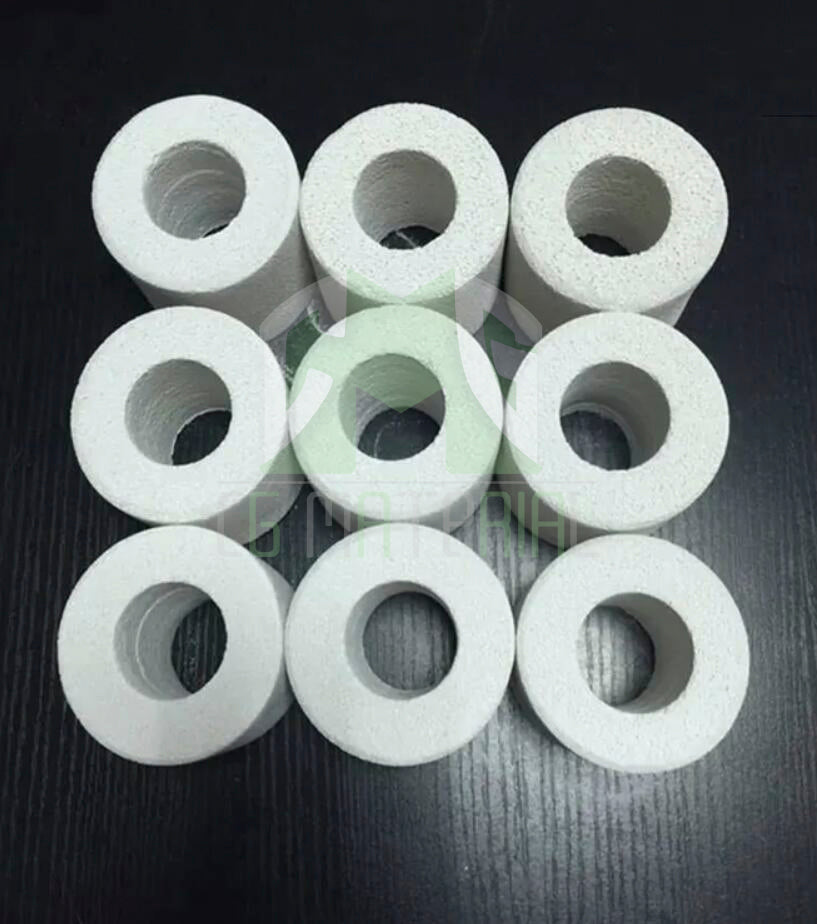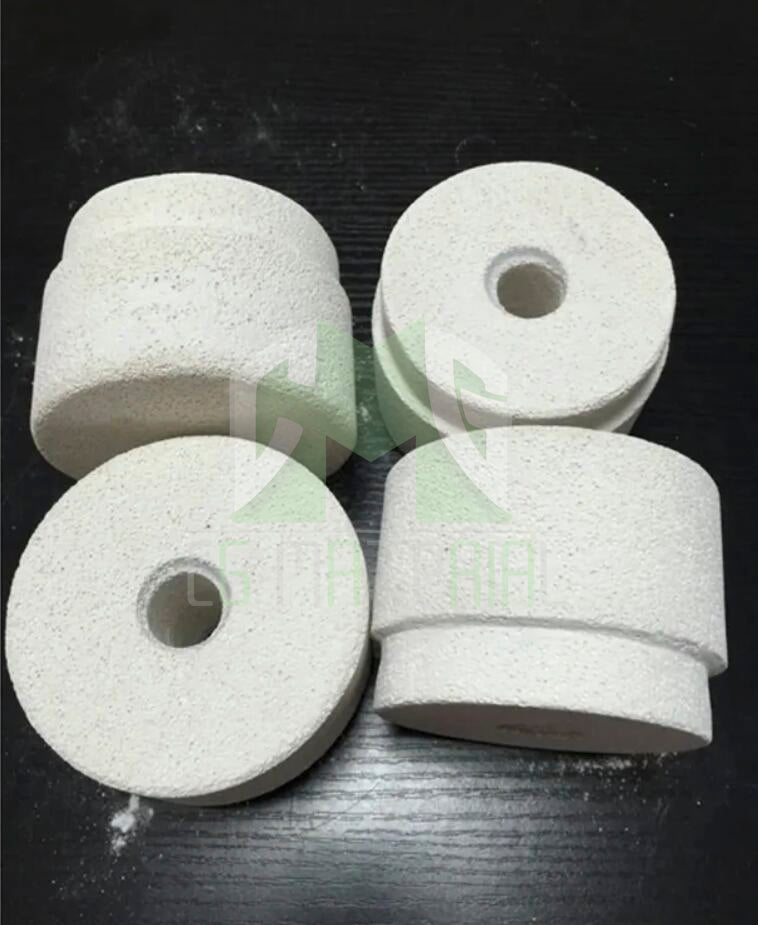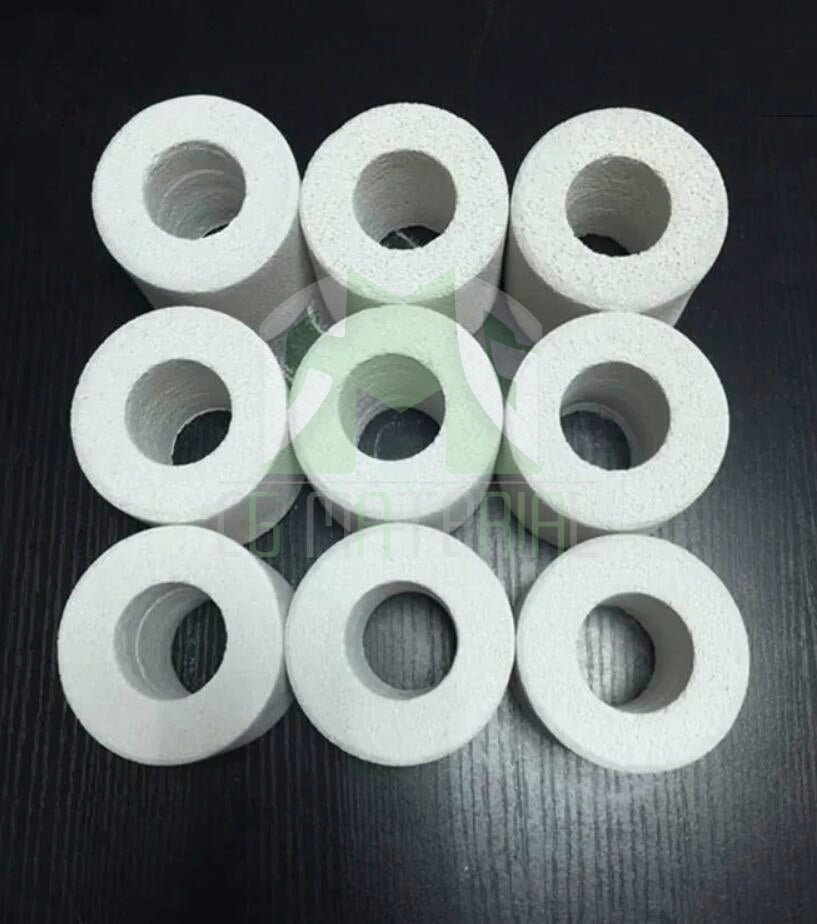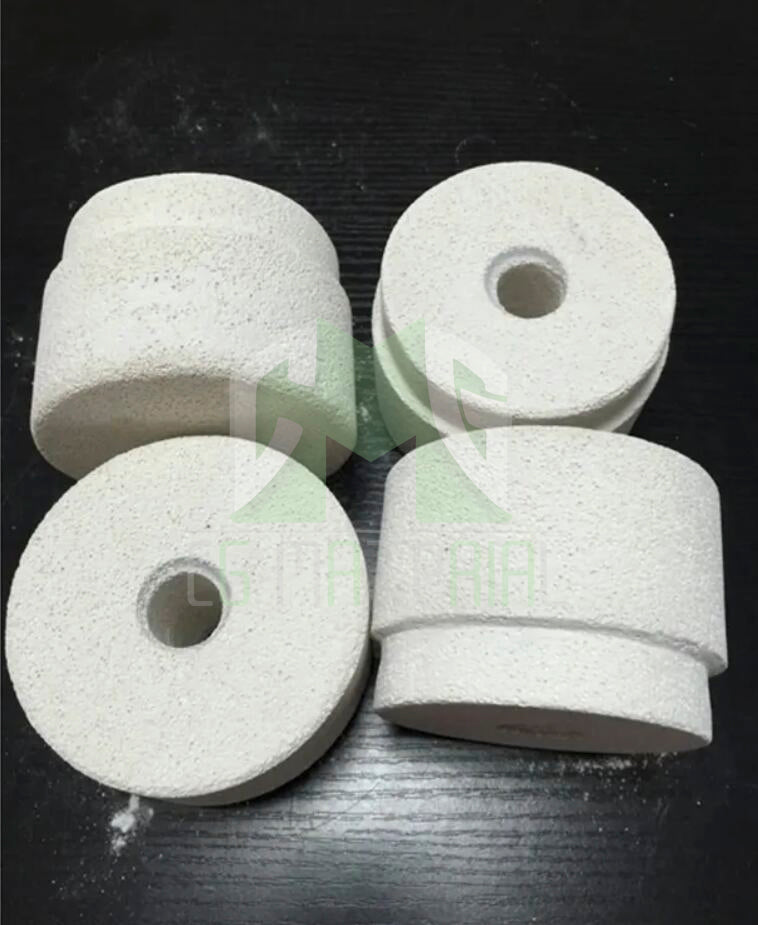CG MATERIAL
Alumina Foam Insulation
Alumina Foam Insulation
Alumina foam insulation is a highly porous ceramic material made of alumina, also known as aluminum oxide (Al2O3), that is used for thermal insulation in various industrial applications. Alumina is a highly durable and heat-resistant material that is widely used in various industrial applications, such as electrical insulation, refractory lining, and high-temperature processing.
Alumina foam insulation is typically produced through a process of shaping and sintering of alumina powder, resulting in a highly porous and uniform ceramic structure. They can vary in size, shape, and pore size depending on the intended use and application.
Alumina foam insulation has excellent thermal properties, including high thermal conductivity and low thermal expansion. They are also resistant to chemical corrosion, making them suitable for use in harsh and corrosive environments.
Alumina foam insulation is commonly used in high-temperature applications, such as in furnace linings, kiln walls, and other industrial heating applications. They provide reliable and efficient thermal insulation while being lightweight and easy to handle.
Alumina foam insulation can also be used in other industrial applications, such as in cryogenic insulation and acoustic insulation. They provide reliable and efficient insulation while being resistant to moisture and chemical exposure.
Overall, alumina foam insulation is a reliable and versatile material that offers excellent thermal insulation properties and longevity in a variety of industrial applications. They provide exceptional thermal insulation and durability in harsh environments, while maintaining high thermal efficiency and reliability over time.
| Catalog No. | CERAMICS |
|---|---|
| Size | Customized |
| Material | Al2O3 |
| Purity | 95% 99% 99.7% |
| Density | 3.8~3.9 g/cm3 |
At CG Material, we offer high quality Alumina Foam Insulation with exceptional purity and precision in terms of size. Our products range in diameter from 1mm to 100mm and have a purity level of up to 99.8%. We also provide custom manufacturing options for special shapes to meet specific needs.
Alumina Foam Insulation Advantages
Alumina foam insulations have the following advantages:
– Higher strength than refractory ceramic fiber and lightweight ceramic brick.
– Low density
– Low thermal conductivity and linear thermal expansion coefficient.
– Great thermal shock resistance.
– Safe and rapid maintenance.
Alumina Foam Insulation Specifications
| Item | SAMCFI-C1 | SAMCFI-C2 | SAMCFI-C3 | SAMCFI-C4 | SAMCFI-C5 |
| Bulk density/g·cm﹣³ | 0.8 | 1 | 1.2 | 1.4 | 1.6 |
| Al₂O₃ content/% | ≥99.6 | ≥99.6 | ≥99.6 | ≥99.6 | ≥99.6 |
| Impurity % | ≤0.1 | ≤0.1 | ≤0.1 | ≤0.1 | ≤0.1 |
| Compressive Strength (Mpa) | ≥30 | ≥65 | ≥72 | ≥97 | ≥135 |
| Reburning line change rate(1800°C×12h)% | ≤0.45 | ≤0.4 | ≤0.35 | ≤0.35 | ≤0.3 |
| Heat conductivity coefficient W/(m.k) | 0.85 | 0.9 | 0.9 | 0.95 | 1.2 |
| Mean temperature 1100±25°C | |||||
| Working temperature/°C | 1800 | 1800 | 1800 | 1800 | 1800 |
| Max. temperature/°C | 1850 | 1850 | 1850 | 1850 | 1850 |
Alumina Foam Insulation Applications
Alumina ceramic foam insulation can be used as the heat-insulating layer of the refractory lining on the hot side, especially the high-temperature reducing atmosphere furnace (1850 °C). It can be used for a long time under 1800 °C air and reducing atmosphere.
Packaging
We handle our products with care to ensure they remain in their original condition during storage and transportation and to preserve their quality.




